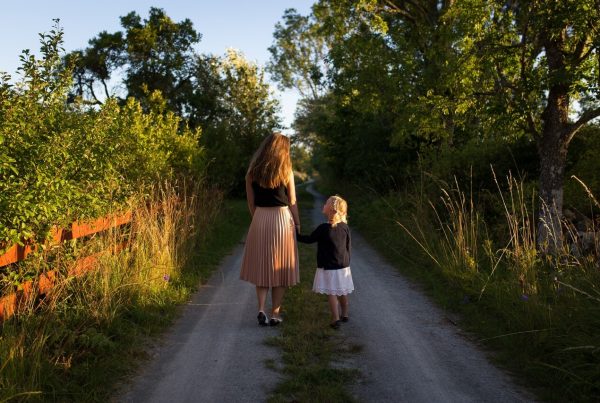I don’t know about you, but I am historically horrible about observing Advent. I owe this neglect primarily to the fact that, for a large portion of my life, I didn’t even understand what Advent is. Growing up, I associated Advent exclusively with the candlelit wreath at the front of the church. Each year four special children were chosen to read Scripture as our pastor lit the candles, and one year I made the cut. That was Advent.
As I grew older, I left the mainline tradition and began attending more contemporary churches. That’s when my knowledge of Advent took a sharp decline. I don’t know if this is true of most contemporary churches, but I have never attended a contemporary church that observed Advent in any sort of discernible way. In fact, this is probably my one and only beef with contemporary worship (which, ironically, has nothing to do with contemporary music as a form): Contemporary worship services rarely follow the church calendar. Year in and year out, we sing Chris Tomlin and Hillsong and the same general line-up that we sing the rest of the year. Christmas is no exception, so Christmas music that prepares our hearts and minds for the season is also noticeably absent.
But I digress. All of that to say, Advent has generally held little to no meaning in my life. In fact, it tends to be the season of my life that is the MOST hectic and least focused on quieting my spirit before God. As a student, it is the time when the semester is winding down and projects are due. As a consumer, it is the time I least enjoy shopping though I am most likely to go to a mall. The weeks leading up to Christmas are crazy and busy, so whenever I hear “Silent Night” wafting through the air at Crate and Barrel, a part of me suspects the writer had a rather different Christmas experience than I do each year.
Advent, which means “coming,” is a time of preparation, but it’s not the kind of preparation that has come to define American Christmas culture. It’s not the “Martha” kind of preparation in which we scurry around buying presents and decorating our homes just so. It’s not even the kind of preparation we usually witness before a wedding day, even though a wedding is also an important metaphor in the Christian church. Like the Christmas season, wedding preparation is a rather frantic affair as the bride and a fleet of helpers scramble to make sure every detail is in place.
Now that I think about it, we rarely observe the kind of preparation for which Advent calls. Perhaps we don’t have a category for that kind of preparation, a preparation that is less about preparing our surroundings and more about preparing our hearts. Advent preparation, unlike the kind with which we are most familiar, is spiritual preparation. It is a preparation marked not by doing but by waiting.
Not only does waiting seem antithetical to preparing, but it is also hard, which is probably why so few of us do it well. We would rather distract ourselves with activities and gimmicks than be patient. But Advent preparation is forged in the waiting. It is hoping in the darkness. It is a time when we look at the broken world around us and remember that we need not despair, because Christ came to us once, and he is coming again. As the Assistant Dean of Duke’s Chapel, Craig Kocher, once preached,
There is nothing wrong with being cheerful and positive, but Christian hope is distinctly different from cheeriness or a positive attitude. Christian hope locks its steely eyes on the devastation of the world around it, and readily acknowledges that life may not be too sunny. Christian hope does not bury its head in yuletide cheer and artificial lights, but like an Advent wreath glowing stronger and brighter each week, this hope gamely pushes its way into the brokenness of the world, clearing a path in the wilderness so the true light might burst into the darkness. The coming of God in the Christ-child at Bethlehem’s manger is not the sentimental vision of a Hallmark greeting card, but a revolution, an act through which God takes back what belongs to him. Christian hope is the conviction that God has given us everything we need to take part in Isaiah’s vision of justice, healing and liberation, for ourselves and for others, the fullness of which is Jesus, the light of the world.
As we prepare for Christmas during the season of Advent, we choose to be a people of hope in a world that is hopeless. However, to be such a people requires more than the mere acknowledgement of Jesus’ coming; it requires that we live out that hope, that we become fundamentally different from the world. It requires transformation, as we no longer conform to the patterns of this world. But that transformation only occurs when our preparation is of the spiritual kind.
During the season of Advent, silent nights–and silent moments, for that matter!–are few and far between. Even so, I intend to seek them out this year. I want to be quiet before God and prepare myself for the coming Light that pierces the darkness. God already came near once, and I know He will come again, but how I prepare for that coming makes all the difference.






Sharon, this post is full of nuggets starting with “one year I made the cut.” I know just what you mean, since I grew up in one of those churches too. I know that I also considered it validating to be chosen for something like that at church, never stopping to reflect that it meant a couple of very important things: one is that it meant someone else did not get chosen, and the second is that I was looking to people for approval and not God (1 Thessalonians 2:4 comes to mind!).
I can’t begin to list all the wonderful insights you have given us here, but I really liked this part as well: “Advent preparation, unlike the kind with which we are most familiar, is spiritual preparation. It is a preparation marked not by doing but by waiting.” These sentences go so well with your conclusion; how we prepare for Christ’s return is important. I think that’s one reason “Joy to the World” resonates with me at Christmas. Even though it is taken from a passage that speaks of Christ’s triumphant return, it guides us into a proper understanding of his birth in Bethlehem.
And then on top of your marvelous reminders you give us that excerpt from Dean Kocher’s sermon. We celebrate God by waiting upon his act, “an act through which God takes back what belongs to him.” I am so glad I belong to him.
Tim
the best way that I can say I am really learning and understanding the preparation this year-the longing and desire of waiting in the darkness-is through our adoption. Right now we are waiting to meet our little one, we don’t know when exactly but every night we sit quietly and pray. The parallels are crazy. This part of the adoption wait, while we prepare our house for her arrival, we prepare our house for Christmas. We prepare for a physical and spiritual change. We wait to hear when news is coming for her (approvals), we listen to the stories of the coming of the Messiah… God is calling on our household for more than just a little girl a half a world away, God’s calling us to him.
Sharon, I was led to your blog today by Tim (above) and glad to find you! I wrote on the Incarnation today so he found some similarities. Your article and commenter above (mama jaja) made me think of Mary, and how her life was not marked by doing, but rather waiting and receiving.
This Advent I made it a point to dig out my Advent Wreath on time and have fresh candles. Each night my husband and I take quiet time at the dining room table with the candle lit and read the daily readings from the Bible. We pray before and after… It’s been real sweet as we set aside this quiet time to prepare our hearts once again to celebrate HIS birth… I feel very blessed. I had forgotten about how important Advent was until I saw my Sister Eileen had an Advent Wreath. It really is all about setting aside a season to draw closer to our Lord.
Hi Sharon!
I happened onto your blog not long ago, and it’s a blessing–thanks for sharing your thoughts. I, too, have neglected Advent in recent years despite it being one of my favorite times of the year. Do you have any recommendations of resources (quiet times, studies, etc.) which aid in this time of reflection?
Thanks!
Hi Elizabeth –
A couple years ago, I started a tradition during Advent of reading the book “Touching Wonder” by John Blase. It takes a look at the Christmas story from the perspective of each person involved (example: Zechariah, Mary, etc). As I read it, I find myself pondering not only what God was doing with His grand plan for redemption by sending Jesus, but also what He was doing in the lives of individuals. I find myself identifying with them and realizing where God is working in my own heart and life, in this season and during the previous year.
Many blessings,
Becca
I have a really simply Advent/Jesse tree devotional that we are doing with our young boys. I couldn’t find anything that would fit our littles, so I wrote something catered to them. Feel free to use it for your own families.
It’s in the docs section of my Facebook page:
http://www.facebook.com/writermonicaselby?ref=tn_tnmn
My friend Joy-Elizabeth Lawrence and I wrote an article full of family-oriented Advent ideas. You can find it here: http://kellitrujillo.wordpress.com/2007/12/02/advent-begins10-ideas-for-observance/
Enjoy!
Elizabeth, I solicited my Twitter followers to help answer your question! Also, I would recommend you google Advent Scripture readings for each week of Advent. They take you through the Old and New Testament, which I love!
Thanks to everyone for your lovely and thoughtful comments! I love my readers so much!!